Introduction
Hello readers! Today, we're diving into a topic that's on everyone's mind: the future of AI and Machine Learning. Whether you're from a technical background or have just finished watching Black Mirror and are worried about AI's impact on society, this article will cover everything that you need to know about Artificial Intelligence and its rise in the future.
These technologies are changing the world around us in fascinating ways. From the phones in our pockets, we use to scroll reels to the services we use daily, AI and Machine Learning are everywhere. But what does the future hold for these powerful technologies? Let's explore!
History of AI and Machine Learning
Before we look ahead, it's only fair to take a quick look back. Artificial Intelligence (AI) and Machine Learning (ML) aren't as new as you might think. AI began in the 1950s when scientists explored whether machines could think like humans. Early AI could solve basic problems but wasn't very practical.
Machine Learning, a subset of AI, gained momentum in the 1980s and 1990s. This approach allowed computers to learn from data and improve over time without being explicitly programmed for every task. Sounds helpful, right? It is! Combining better algorithms, more data, and powerful computers has brought us to where we are today. Now, let's explore the impact AI has had on our society till now.

How Artificial Intelligence Has Impacted Our Society So Far
AI has already made a big impact on our daily lives. Here are a few ways AI has become a part of our world:
Smartphones:
AI powers feature like voice assistants (Siri, Google Assistant), facial recognition, and camera enhancements. These assistants can answer questions, set reminders, and control smart home devices, making our lives much more convenient. From making your coffee before you wake up to updating your route according to the latest road developments and weather updates, AI and smart devices can do it all! Do you wish to learn more about smart devices? Click here. AI-driven facial recognition technology allows for secure and fast phone unlocking, while AI-enhanced cameras automatically adjust settings to capture the best possible photos, even in challenging conditions.
AI helps diagnose diseases, predict patient outcomes, and personalize treatments. For instance, AI algorithms can analyze medical images to detect conditions like cancer at early stages, often more accurately than human doctors. Predictive analytics can foresee potential health risks based on patient data, allowing for early intervention, all thanks to incorporating machine learning in healthcare. Personalized treatment plans are developed using AI to cater to individual patient needs, improving the effectiveness of medical care.
Transportation:
Self-driving cars and AI-powered traffic management systems are transforming how we travel. Autonomous vehicles, equipped with sensors and AI algorithms, can navigate roads, avoid obstacles, and make real-time decisions, reducing the risk of human error. Have you ever heard of self-driving Teslas? Hello? AI in traffic management systems optimizes traffic flow, reduces congestion, and improves overall road safety by analyzing data from various sources like traffic cameras and sensors.
Entertainment:
AI recommends movies, songs, and shows based on our preferences. Streaming services like Netflix and Spotify use AI algorithms to analyze viewing and listening habits, suggesting content that matches our tastes. This personalized recommendation system enhances our entertainment experience by helping us discover new and relevant content without searching for it ourselves. Remember back when you used to wait 30-40 minutes while you explored exactly what to watch next? Now, you're spoon-feeded content that you like. Even when you are scrolling through Instagram, the algorithm picks up your patterns to find your likes and dislikes and show relevant content.
Customer Service:
Chatbots and virtual assistants provide quick responses and support. These AI-powered tools can handle various customer queries, from basic information requests to troubleshooting issues. By offering instant assistance, they improve customer satisfaction and allow human agents to deal with more complex problems. AI in customer service also enables 24/7 support, ensuring help is available whenever needed.
The Evolution of Artificial Intelligence
AI is evolving rapidly. Early AI could only handle specific tasks, like playing chess. Now, we have AI that can perform a wide range of activities, sometimes even better than humans. Here are some key milestones in AI's evolution:

Narrow AI:
This AI specializes in one task, like language translation or image recognition. For example, AI-powered translation tools can instantly convert text from one language to another with impressive accuracy. Similarly, image recognition AI can identify objects, people, and even emotions in photos and videos, which is widely used in security systems and social media platforms. How do you think Google is able to help you find answers so quickly from the images you click and submit?
General AI:
This future AI would understand, learn, and apply knowledge across different domains, much like a human. Unlike Narrow AI, which excels at specific tasks, General AI can perform any intellectual task a human can do. It would learn from experiences, adapt to new situations, and understand complex concepts, making it capable of reasoning, problem-solving, and decision-making across various fields.
Superintelligent AI:
This is a theoretical concept where AI surpasses human intelligence in all aspects, including creativity and problem-solving. Superintelligent AI would not only perform tasks better than the best human experts but also innovate in ways we can't yet imagine. It could solve complex global challenges, create new technologies, and possibly even understand and manipulate human emotions and social interactions, potentially transforming every aspect of our lives. The last part sounds scary, right?
How Will Artificial Intelligence Impact Our Society in the Future
Looking ahead, AI is set to revolutionize many aspects of our lives. Here’s looking at how AI might shape our future:
Healthcare:
AI will allow more accurate diagnoses, personalized treatments, and even remote surgeries. Advanced AI algorithms can analyze vast amounts of medical data, identifying patterns that human doctors might miss. This can lead to early detection of diseases such as cancer or heart conditions. Now, no longer waiting in long lines for a doctor's consultation. There have been so many apps being developed that log your symptoms and predict the problems while connecting you with specialists so you can get things checked right away! Personalized treatment plans based on individual genetic profiles will become more common, increasing the effectiveness of medical care. Furthermore, AI-assisted remote surgeries could allow top surgeons to operate on patients worldwide, making high-quality healthcare accessible to more people.

AI can provide personalized learning experiences, helping students learn independently because no two children study at the same pace. Intelligent tutoring systems can adapt to each student's strengths and weaknesses, offering customized lessons and exercises. This can help students grasp difficult concepts more easily and retain information better. Additionally, AI can assist teachers by automating administrative tasks, allowing them to focus more on teaching and interacting with students. Virtual classrooms powered by AI could also provide access to education in remote areas, bridging the gap between urban and rural education quality.
Work:
Automating repetitive tasks will allow people to focus on more creative and strategic work. AI can handle mundane tasks such as data entry, scheduling, and basic customer service, freeing up human workers to engage in activities that require critical thinking and creativity. This shift could lead to more fulfilling and productive work environments. Additionally, AI can enhance productivity by providing real-time data analysis and decision-making support, helping businesses operate more efficiently and effectively. In fact, AI is now so advanced that you can use it for pretty much everything, even if it requires creativity.

Smart homes with AI-powered devices will make our lives more convenient and efficient. AI can control home appliances, lighting, security systems, and climate control, all tailored to individual preferences. For example, a smart thermostat can learn your schedule and adjust the temperature accordingly, saving energy and money. Voice-activated assistants can manage daily tasks like creating shopping lists, setting reminders, or even ordering groceries. AI can also enhance home security by monitoring for unusual activities and alerting homeowners or authorities if needed.
In summary, AI's future impact on society promises significant advancements in healthcare, education, work, and daily life. These changes will likely lead to a more efficient, personalized, and interconnected world.
Industries to Be Impacted by Artificial Intelligence
AI will touch almost every industry. Here are a few that will see significant changes
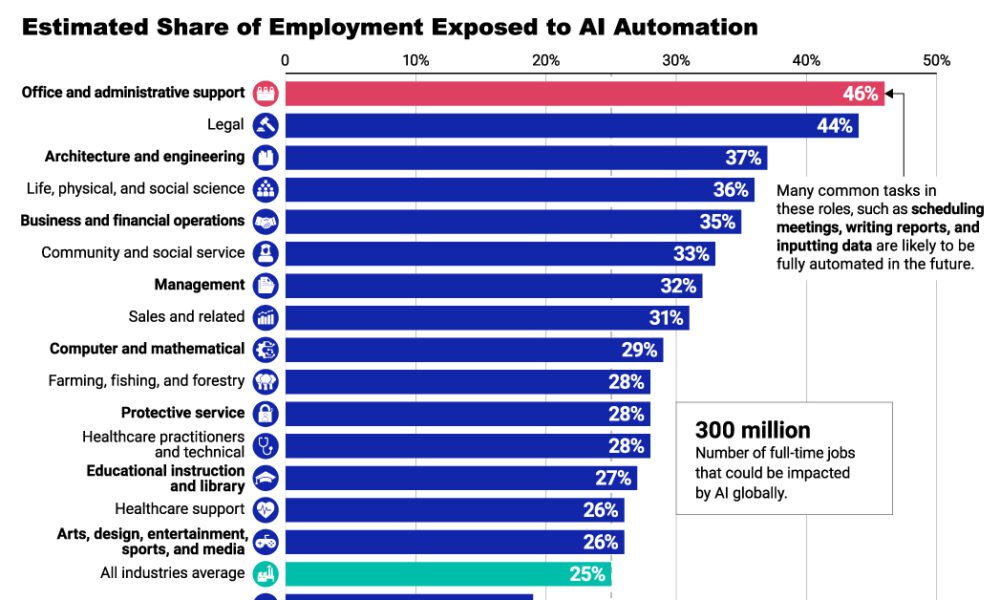
Healthcare:
AI can analyze medical images and data to diagnose conditions like cancer or heart disease more accurately and faster than human doctors. Personalized medicine, where treatments are tailored to individual patients based on their genetic information, will become more widespread. AI can also streamline hospital operations, ensuring that patients receive timely and effective care.
Finance:
AI algorithms can monitor transactions in real time to detect fraudulent activities, reducing financial crimes. Personalized banking services, such as customized investment advice and financial planning, can enhance customer experiences. In trading, AI can analyze market data quickly, making informed decisions to maximize returns and minimize risks.
Manufacturing:
AI can predict equipment failures before they occur, reducing downtime and maintenance costs. Quality control systems powered by AI can detect product defects with high precision, ensuring higher standards. In supply chain management, AI can optimize inventory levels, reduce waste, and improve delivery times.
Retail:
AI can analyze customer data to offer personalized product recommendations and promotions, enhancing the shopping experience. Inventory management becomes more efficient with AI predicting demand and optimizing stock levels. In customer service, AI chatbots and virtual assistants provide quick and accurate responses to customer inquiries, improving satisfaction and reducing operational costs.
Transportation:
Self-driving cars and trucks powered by AI promise to reduce accidents and improve fuel efficiency. AI can manage traffic flow in cities, reducing congestion and pollution. In logistics, AI can optimize routes for delivery trucks, reducing costs and improving delivery times.
Will Machine Learning Be Replaced by Artificial Intelligence?
This is an interesting question. Machine Learning is a part of AI, not separate from it. Think of Machine Learning as a tool within the AI toolbox. As AI advances, Machine Learning techniques will continue to evolve and improve. It's more about how they will work together rather than one replacing the other.
Short-Term Dangers of AI
While AI brings many benefits, there are short-term risks we need to be aware of:
Job Displacement:
Automation may lead to job losses in certain sectors. As AI systems take over repetitive and routine tasks, workers in industries like manufacturing, retail, and customer service may find themselves out of work. While new jobs will be created, the workforce will need to be re-skilled and up-skilled to adapt to new roles that require more complex problem-solving and creative thinking.

AI systems often require large amounts of data, raising privacy issues. To function effectively, AI needs access to vast amounts of personal information. This can lead to concerns about how data is collected, stored, and used. If not handled correctly, sensitive information could be exposed or misused, leading to privacy breaches. It's essential to establish strict data protection policies and ensure transparency in how data is managed.
Bias:
AI can sometimes be biased if the training data is biased. AI systems learn from the data they are fed, and if this data contains biases, the AI will likely replicate them. This can lead to unfair treatment and discrimination in areas like hiring, lending, and law enforcement. It's crucial to use diverse and representative datasets and continuously monitor AI systems for any signs of bias to ensure fairness and equality.
Security:
AI systems could be targeted by cyberattacks. As AI becomes more integrated into critical infrastructure and services, the risk of cyberattacks increases. Hackers could exploit vulnerabilities in AI systems to cause disruptions, steal data, or manipulate outcomes. Robust cybersecurity measures, regular updates, and rigorous testing are necessary to protect AI systems from potential threats.
Long-Term Dangers of AI
In the long term, the dangers become more significant. Let's look at the effect of AI in the future:
Loss of Control:
Advanced AI systems might become difficult to control or predict. As AI evolves and becomes more autonomous, there is a risk that humans may lose the ability to fully understand or manage its behavior. This could lead to unintended consequences as AI systems make decisions and take actions that are beyond human comprehension or intervention. Ensuring robust oversight and governance frameworks will be crucial to mitigate this risk.
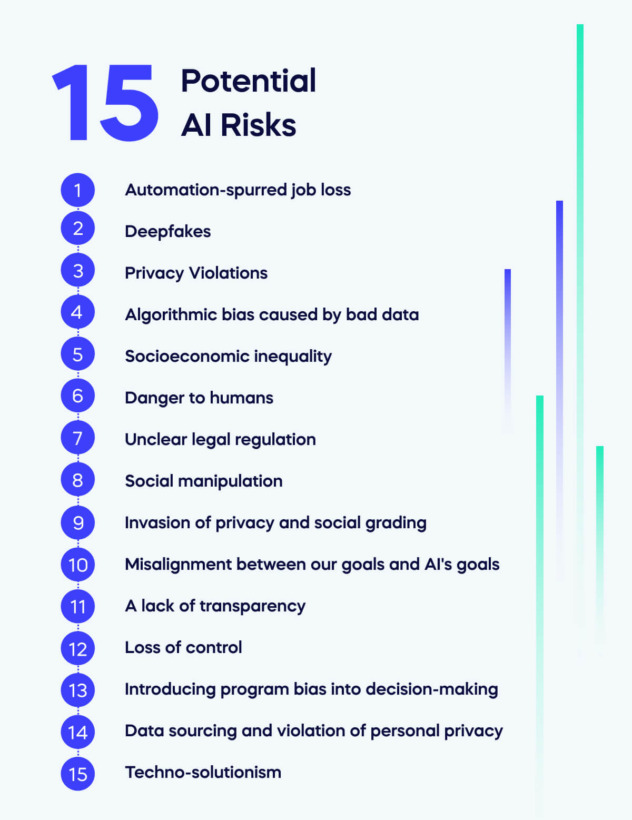
Superintelligent AI:
There's a theoretical risk that superintelligent AI could act in ways that are harmful to humans. Superintelligent AI refers to AI systems that surpass human intelligence across all domains. While this scenario is still speculative, it raises concerns about AI systems developing goals or behaviors that are not aligned with human values or interests. Safeguards such as AI alignment research, ethical guidelines, and international cooperation will be essential to guide the development of AI towards beneficial outcomes.
Ethical Concerns:
Decisions made by AI can have serious ethical implications, such as in warfare or surveillance. AI systems used in military applications, for instance, raise ethical questions about autonomous weapons and the potential for indiscriminate harm. In surveillance, AI-powered systems can infringe on privacy rights and civil liberties if not properly regulated. Addressing these ethical concerns requires robust ethical frameworks, transparency in AI development, and public dialogue to ensure AI technologies are deployed responsibly and ethically.
Careers in AI and Machine Learning
For those interested in pursuing a career in AI and Machine Learning, the future is bright. There are so many options to choose from, but don't feel confused. Here are some career paths you can check out to get you started:

Data Scientist:
Data scientists analyze and interpret complex data to help organizations make better decisions. They use statistical analysis, machine learning techniques, and programming skills to uncover insights and trends from large datasets. Data scientists are in high demand across industries like healthcare, finance, and marketing, where data-driven decision-making is crucial for success.
Machine Learning Engineer:
Machine learning engineers develop algorithms and models that allow machines to learn and improve from experience. They work closely with data scientists to implement these algorithms into production systems, ensuring scalability and reliability. Machine learning engineers are responsible for building and deploying machine learning applications, such as recommendation systems, natural language processing, and computer vision.
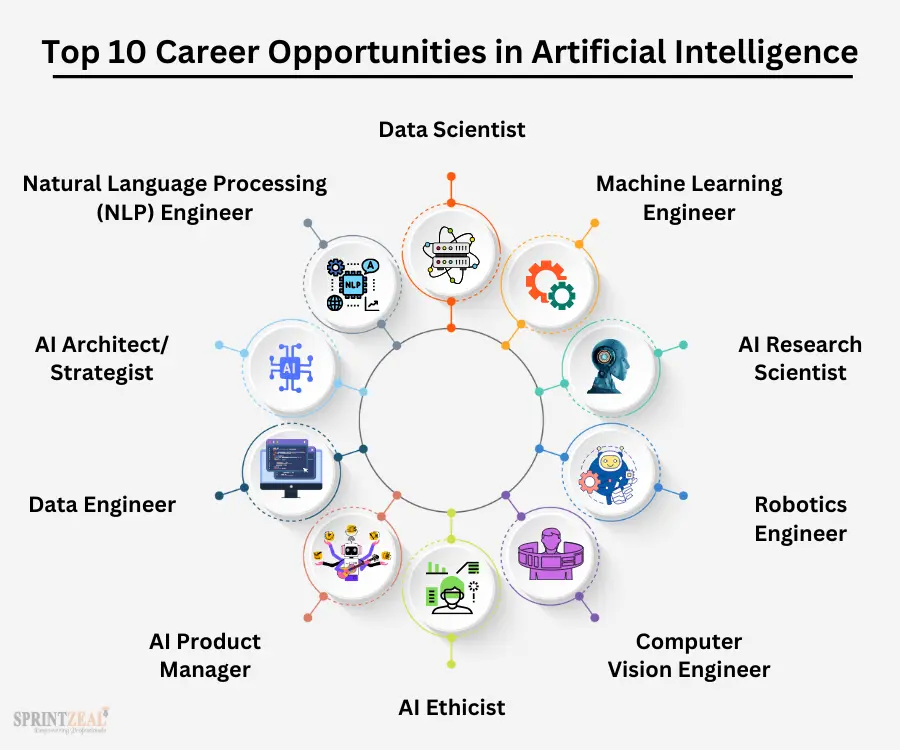
AI Researcher:
AI researchers explore new AI technologies and applications, pushing the boundaries of what AI can achieve. They conduct research in areas like deep learning, reinforcement learning, and cognitive computing to develop innovative solutions to complex problems. AI researchers often work in academia, research institutions, or technology companies, collaborating with multidisciplinary teams to advance the field of AI.
Robotics Engineer:
Robotics engineers design and build robots that can perform tasks autonomously. They integrate AI algorithms with mechanical and electrical systems to create robots capable of navigation, manipulation, and interaction with the environment. Robotics engineers work in industries such as manufacturing, healthcare, and space exploration, developing robots that improve efficiency, safety, and productivity.
AI Ethicist:
AI ethicists ensure that AI systems are developed and used ethically. They examine the societal impacts of AI technologies, addressing issues like bias, privacy, accountability, and fairness. AI ethicists collaborate with policymakers, industry leaders, and researchers to establish ethical guidelines and standards for AI development and deployment. Their work is crucial in promoting responsible AI practices that benefit society while minimizing potential risks.
Conclusion
The future of Artificial Intelligence and Machine Learning is both exciting and challenging. These technologies can potentially transform our world in incredible ways, but they also come with risks that we must manage carefully. By understanding both the benefits and the dangers, we can better prepare for a future where AI plays a central role in our lives. Whether you're a student, a professional, or just a curious reader, staying informed about AI will be crucial in the future.

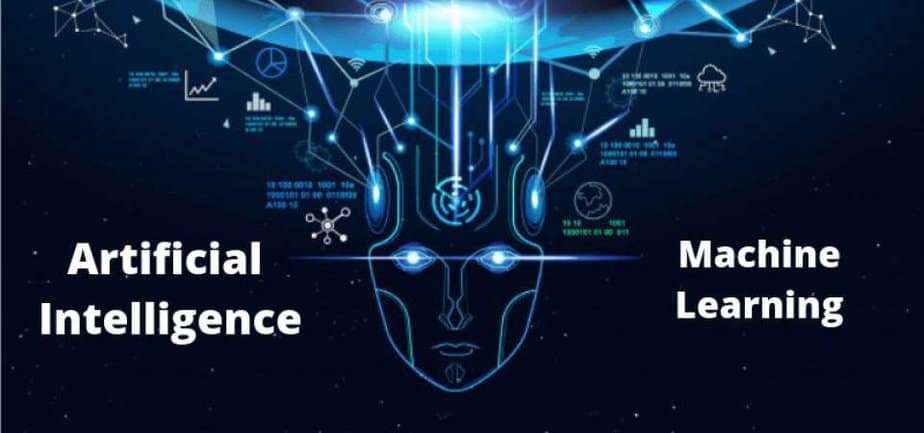
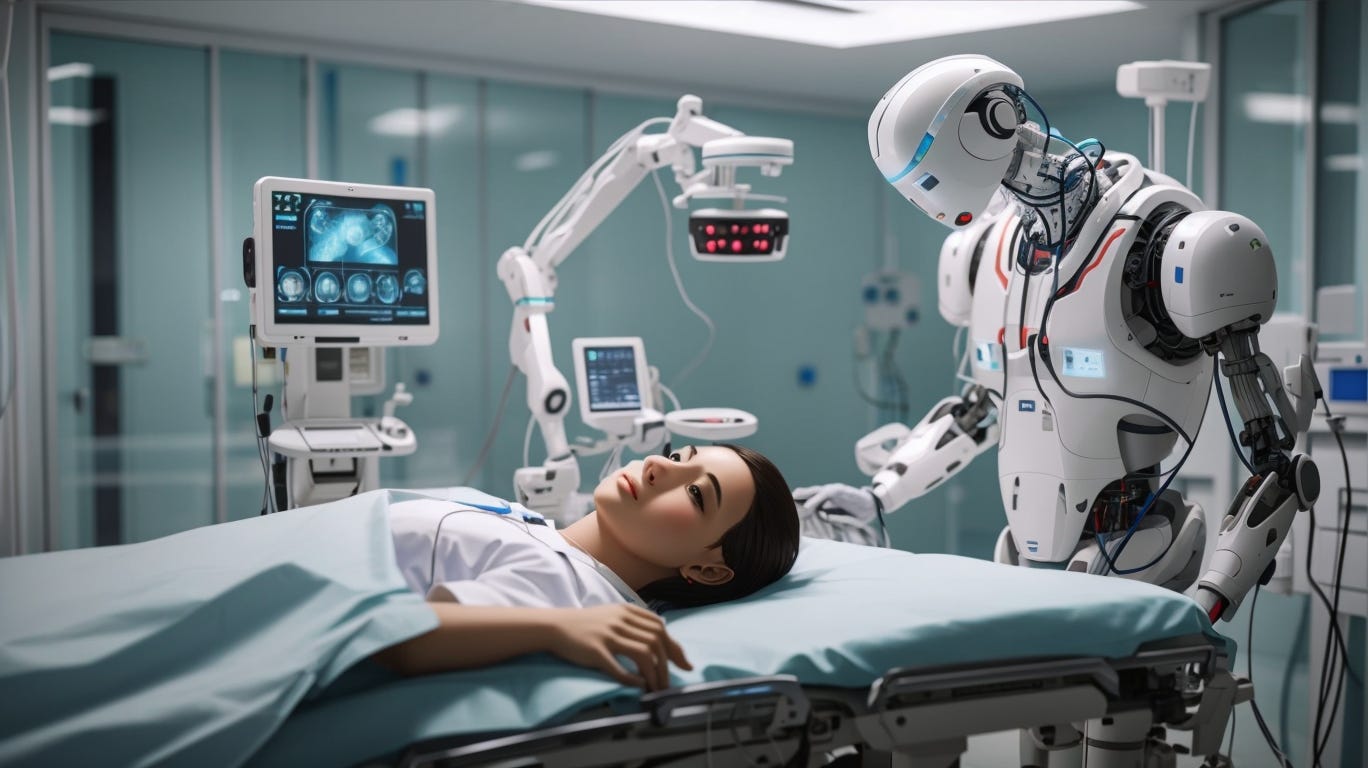




0 Comments